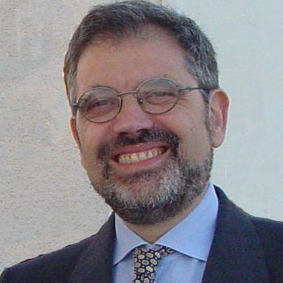Today, a lot of the world’s monetary wealth is in the hands of a tiny group of super-rich people; the virtual equivalent of Scrooge McDuck’s money bin. What would happen if this money were stolen by the Beagle Boys or redistributed in some way? Would it change something in terms of climate change and resource depletion?
Two posts recently published on "Cassandra’s Legacy" discuss the possible consequences of a redistribution of the world’s wealth on greenhouse gas emissions. The first, by Jacopo Simonetta, argues that a more egalitarian distribution, that he calls "Operation Robin Hood," would raise emissions and worsen the climate change problem. The other, by Diego Mantilla, argues the opposite.
Both Simonetta and Mantilla start by analyzing the correlation between carbon emissions and monetary wealth. The data available clearly indicate that there exist a proportionality between the two parameters. And, of course, as long as that proportionality holds, there follows that, no matter how we redistribute the monetary wealth, nothing changes, which is Mantilla’s main point. He then cites the example of Cuba as a relatively egalitarian but low-impact country.
However, the correlation wealth-emissions is lost when we go to the extreme end of the curve, that of the super-rich; who emit proportionally less than the poor. For instance, Bill Gates’ net worth is presently estimated as around 80 billion USD; but it is unlikely that he emits one million times more CO2 than a middle-class westerner whose net worth is, say, around 80 thousand USD. So, Simonetta argues that taking money from the rich and giving it to the poor would raise emissions and worsen the climate change problem.
Given their initial assumptions, both Mantilla and Simonetta may be right. But the problem is a different one and it lies in the fact that money is a purely virtual entity, while resources are real ones. Today, the fossil fuel industry that produces something of the order of 90 billion barrels per day of combustible liquids, and more fuels in the form of coal and gas. Why should a redistribution of the world’s monetary wealth change these productive levels? The oil industry doesn’t care about who buys oil and even the hypothetical disappearance of the category of the super-rich would simply mean that there would be fewer personal jets and more small cars. But, from the viewpoint of emissions and of resource depletion, nothing would change.
That’s true, however, only as a first approximation because the economic system would change and adapt to a redistribution of wealth. For instance, Simonetta makes the point that "Operation Robin Hood would produce a sensible reduction in mortality, and probably an increment in natality too, among low wage people. So a sharp population increase, at least for one or two generations." This is perfectly possible if, say, the mansions of the super-rich were to be turned into hospitals for the poor.
But it may also be true that a redistribution of wealth would lead a large number of people to go through the "demographic transition". That is, for instance, turning the mansions of the super-rich into public schools would lead to a large number of better-educated women who, then, would tend to have fewer children. And that would reduce emissions.
In the end, a substantial redistribution of the world’s wealth in more egalitarian terms would probably have little effect in the short term, but it might have unpredictable ones in the long term. What we can say for sure is that the world is evolving in the opposite direction to the one that Robin Hood would favor: the rich are becoming richer, and the poor poorer. At the same time, we keep emitting greenhouse gases at the highest rates ever observed in history. Are these two trends correlated? Difficult to say, but perhaps moving to a renewable-powered world would be the best way to get a less unbalanced wealth distribution.







